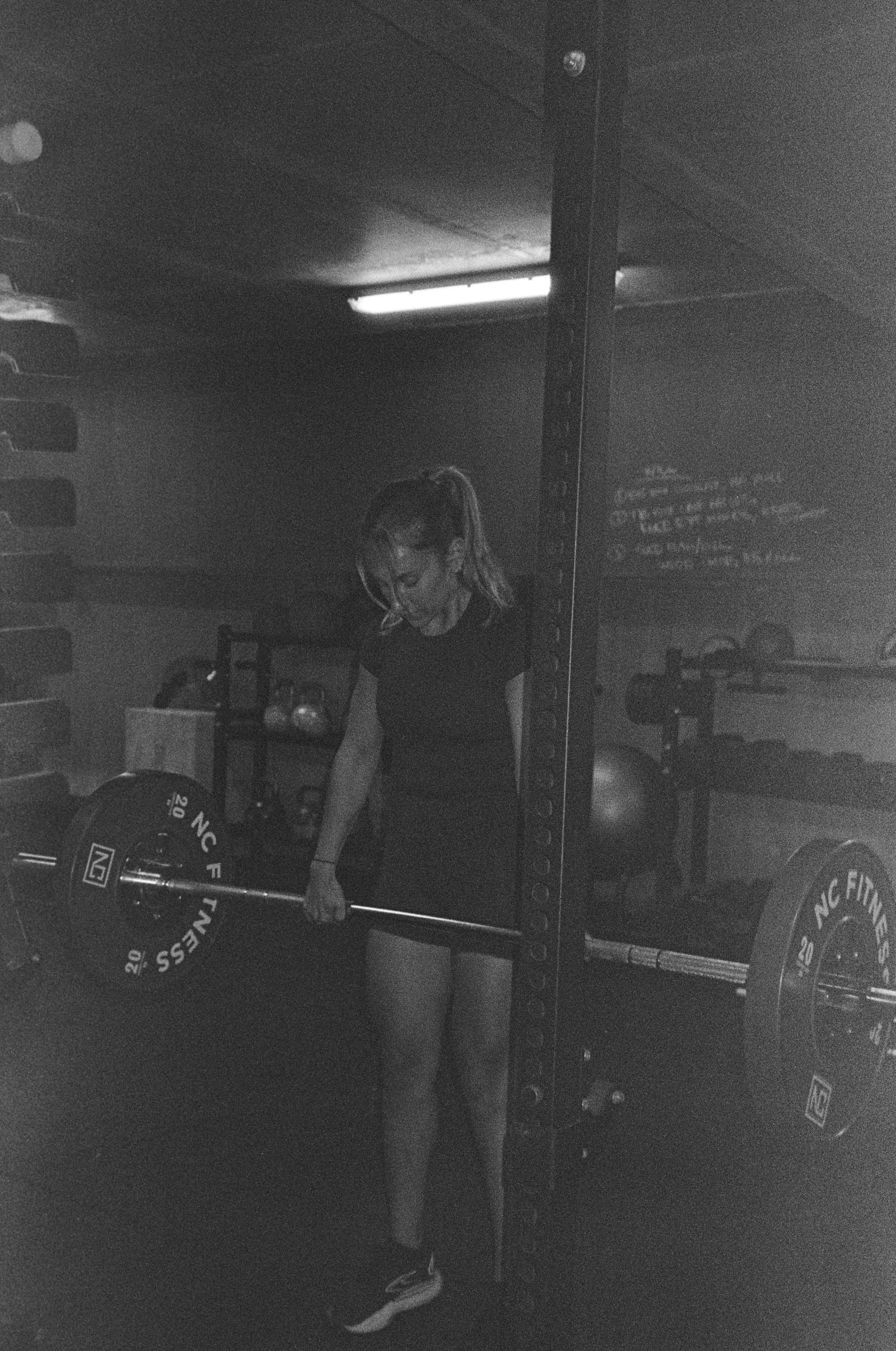Top 10 Best Private Health Insurers in Australia: The Complete Guide for 2025
Choosing which health insurance is best in Australia can feel overwhelming. With dozens of providers and hundreds of policies, finding the right cover that actually meets your needs (and budget) is no small task. We've done the heavy lifting for you, comparing the best health insurance Australia has to offer.
Whether you're searching for comprehensive hospital cover, extras for physio treatments at HomeRun, Evolutio, or whether you’re a cyclist and need a bike fit or a cycling physiotherapist at Ciclo or just want peace of mind, this guide breaks down everything you need to know.
What Makes the Best Health Insurers Australia Different?
Not all health funds are created equal. The best health insurance Australia providers distinguish themselves through several key factors: competitive pricing, extensive hospital networks, faster claims processing, and genuinely useful extras coverage.
Many people turn to forums like best health insurance australia reddit threads to get real user experiences, and we've incorporated those insights here alongside expert analysis.
The Top 10 Australia Best Health Insurance Providers
1. Defence Health
Originally established for Australian Defence Force personnel, Defence Health is now available to everyone. They bring a service ethos that translates to exceptional member support.
Hospital cover is comprehensive, with particularly strong coverage for mental health services and rehabilitation – reflecting their understanding of health challenges faced by defence members. Their extras coverage includes generous physio limits, beneficial if you're receiving ongoing treatment for injuries or chronic conditions.
Defence Health also offers unique benefits like international emergency evacuation cover on some policies and support programs for veterans transitioning to civilian life. The fund consistently receives high customer satisfaction ratings and their claims processing is remarkably efficient.
Best for: Military families, veterans, and people who value exceptional service standards.
2. HCF
HCF operates as a not-for-profit, which means they're returning value to members rather than shareholders. This model often translates too more competitive premiums and better benefits.
Their hospital cover includes some unique features like cancer care coordination and mental health programs that go beyond basic psychiatric services. HCF members also get access to exclusive health management programs for chronic conditions.
What really stands out? Their focus on member wellbeing extends to partnerships with allied health providers. Whether you need physiotherapy, psychology, or dietetics, HCF's extras cover provides solid annual limits.
Best for: Members who appreciate the not-for-profit model and want strong allied health coverage.
3. Medibank
As Australia's largest health insurer, Medibank has the infrastructure and hospital agreements to back up their policies. They own a network of medical centers and have partnerships that can reduce your out-of-pocket expenses significantly.
The company has invested heavily in digital health tools. Their 24/7 health advice line staffed by nurses is genuinely helpful, members report that its much better than waiting in emergency departments for non-urgent issues.
Medibank's extras policies cover things like physiotherapy sessions at places like HomeRun Physio, dental work, and optical – the everyday health expenses that add up quickly.
Best for: People who value digital health services and want access to a large hospital network.
4. NIB
NIB has built a reputation for innovation in the health insurance space. They were early adopters of app-based claims and digital health cards, making the admin side of health insurance much less painful.
Their hospital cover tiers are clearly defined, making it easier to understand exactly what you're getting. NIB also offers some of the more generous optical and dental limits in their extras policies.
The company runs a rewards program where healthy behaviors (like regular exercise and preventative checkups) can reduce your premiums. It's an interesting approach that rewards members for looking after themselves.
Best for: Tech-savvy individuals and families who want a modern insurance experience.
5. Australian Unity
Australian Unity takes a holistic approach to health that extends beyond just insurance. They operate wellness centers, retirement living, and even banking services – all with a focus on member wellbeing.
Their health insurance policies reflect this philosophy. Hospital cover includes comprehensive rehabilitation support, and their extras cover includes things like naturopathy and acupuncture that many other funds exclude or limit heavily.
For active individuals who might need regular physio or sports injury treatment, Australian Unity's extras annual limits are competitive. They've also got strong dental coverage which is often a weak point for many insurers.
Best for: People interested in complementary therapies and a more integrated approach to health.
6. HBF
Originally Western Australia based, HBF has expanded nationally and brings with them a strong member-focused culture. They consistently score well in customer satisfaction surveys.
HBF's hospital policies include some unique features like automatic upgrades when you're admitted to hospital – meaning you might get a better level of cover than you're paying for in certain circumstances. Their "Your Choice" program also gives members more control over how they use their extras.
The fund has good relationships with physio clinics across Australia, making claiming for services at HomeRun Physio straightforward and hassle-free.
Best for: People who prioritize customer service and flexibility.
7. GMHBA
GMHBA is another not-for-profit insurer that's been around since the 1930s. That longevity speaks to their financial stability and member retention.
Their policies are straightforward without excessive fine print. Hospital cover options range from basic to top-level, and they're transparent about waiting periods and exclusions. GMHBA has been investing in their digital platforms recently, with improved mobile apps and online claiming.
One standout feature is their travel insurance bundle option. If you travel frequently, combining your health and travel insurance with GMHBA can save money and simplify your coverage.
Best for: Travelers and people who value straightforward, honest insurance products.
8. Teachers Health
Don't let the name fool you – while Teachers Health started as a fund for education professionals, it's now open to everyone. They've maintained that community feel while expanding their membership base.
Hospital agreements are solid, particularly in regional areas where some of the bigger funds can have gaps. Their extras cover is generous, especially for preventative services like dental checkups and physio consultations.
Teachers Health runs a strong health and wellbeing program with discounts on gym memberships, fitness programs, and even cycling gear from partners like Ciclo Melbourne. It's health insurance that encourages you to stay healthy.
Best for: Regional Australians and people who want a community-focused insurer.
9. AHM
AHM (formerly Australian Health Management) positions itself as a budget-friendly option without compromising on essential coverage. They're actually owned by Medibank but operate as a separate brand with lower premiums.
The trade-off? Less extensive hospital agreements and fewer bells and whistles. But for young, healthy individuals or families who want basic coverage without breaking the bank, AHM delivers solid value.
Their extras policies cover the essentials – dental, optical, physio – with reasonable annual limits. Claims processing is quick, and the digital experience is smooth.
Best for: Budget-conscious individuals and young families.
10. Bupa Australia
Bupa consistently ranks as one of the best health insurers australia, and for good reason. Their hospital coverage is extensive, with agreements at nearly every private hospital across the country.
What sets Bupa apart is their focus on preventative care. Members get access to health assessments, mental health support programs, and discounts on fitness memberships. If you're into cycling, you might appreciate their partnerships with wellness brands like Ciclo Melbourne for holistic health approaches.
Their extras cover is particularly strong for physiotherapy and remedial massage – essential if you're recovering from injury or managing chronic pain. Claims are processed quickly through their app, which makes life easier when you need reimbursement fast.
Best for: Families and people wanting comprehensive preventative care options.
How to Choose Which Health Insurance is Best in Australia for You
Picking from the best health insurance Australia offers isn't just about going with the biggest name. Here's what actually matters:
Consider Your Life Stage and Health Needs
A 25-year-old marathon runner has very different needs than a 45-year-old family with three kids. Young singles might prioritize extras for sports physio and optical, while families need strong hospital coverage for potential pregnancies, pediatric care, and orthodontics.
If you're active in sports or exercise regularly, ensuring your extras cover has good physio benefits is essential. Regular treatments at clinics like HomeRun Physio or Evolutio Physio in Richmond can prevent small injuries from becoming major problems.
Hospital Coverage vs Extras
Hospital cover protects you for in-patient treatments, surgery, and serious medical events. Extras (also called ancillary or general treatment) covers things like dental, physio, optical, and other out-of-hospital services.
Many Australians undervalue extras until they need them. That routine dental cleaning, new glasses, or physio session for your back pain – these everyday expenses add up quickly without cover.
Understanding Waiting Periods
Most policies have waiting periods before you can claim. Typically it's 2 months for extras, 2 months for psychiatric care, and 12 months for pre-existing conditions and pregnancy. Some funds offer reduced waiting periods as a competitive advantage.
Check Hospital Agreements
Not all insurers have agreements with all hospitals. Before committing, check which hospitals in your area are covered. Being treated at a non-agreement hospital can result in significant out-of-pocket costs.
The Lifetime Health Cover Loading
If you don't take out hospital cover before you turn 31, you'll pay a 2% loading for every year over 30. This loading applies for ten years. It's the government's way of encouraging people to get insured early.
What Reddit Users Say About Best Health Insurance Australia
The best health insurance australia reddit discussions offer unfiltered insights from real members. Common themes that emerge:
Claims processing speed varies significantly between funds. Members consistently praise Bupa and NIB for quick turnaround.
Customer service quality matters more than people expect. When you're dealing with health issues, the last thing you need is insurance headaches.
Hospital agreements have hidden gaps. Multiple users reported being surprised by out-of-pocket costs at hospitals they assumed were fully covered.
Extras annual limits get exhausted faster than expected, especially for families with multiple children needing dental or optical care.
These real-world experiences are invaluable when choosing between the best health insurers australia has available.
The Real Cost of Private Health Insurance
Premium costs vary wildly based on your age, location, coverage level, and excess choices. As a rough guide:
Singles might pay $80-250/month for hospital and extras
Couples typically pay $160-450/month
Families often pay $300-600/month
Higher excess options (what you pay when you're admitted to hospital) can reduce monthly premiums but increase your upfront costs if you need treatment.
Many people don't realise that private health insurance becomes more expensive as you age. Insurers adjust premiums based on age brackets, so your costs will increase over time regardless of claims history.
Making the Most of Your Health Insurance
Having great coverage is only useful if you actually use it. Here's how to maximize value:
Use Your Extras Annually
Most extras benefits don't roll over. If you have physio cover, use it for preventative treatment and recovery rather than waiting until you're injured. Same goes for dental checkups and optical tests.
Review Your Policy Yearly
Your health needs change. That policy you bought five years ago might no longer be the best fit. The best health insurance Australia providers offer can change as companies update their products and hospital agreements.
Check comparison sites like Finder or Canstar annually to ensure you're still getting competitive value.
Understand Your Gaps
"No gap" or "known gap" doesn't mean zero out-of-pocket. It means the insurer has an agreement with the provider about fees. Always ask about potential costs before treatment.
Keep Fit and Healthy
Some of the best health insurers australia offers now reward healthy behaviors with premium discounts or other benefits. Regular exercise – whether that's cycling with Ciclo Melbourne or hitting the gym – can literally pay off.
Common Private Health Insurance Mistakes to Avoid
Taking Cover Just for the Tax Benefits
Yes, high earners pay the Medicare Levy Surcharge if they don't have hospital cover, but getting the cheapest possible policy just to avoid tax isn't smart. You'll end up with coverage that doesn't actually protect you when you need it.
Ignoring Exclusions
That "comprehensive" hospital policy might exclude things you assume are covered. Mental health services, pregnancy, and joint replacements often have specific limitations.
Not Comparing Policies
Brand loyalty in health insurance rarely pays off. The best health insurance australia providers are competitive, but that doesn't mean your current fund is still offering the best value for your circumstances.
Downgrading at the Wrong Time
People often downgrade or cancel hospital cover when money's tight. But this restarts your waiting periods if you rejoin later, and increases your Lifetime Health Cover loading if you're over 31.
The Future of Health Insurance in Australia
The industry is evolving rapidly. Digital health integration, preventative care programs, and personalised policies based on individual health data are becoming more common.
We're seeing more partnerships between health funds and allied health providers, making it easier to access services like physiotherapy and mental health support. The best health insurance Australia offers will increasingly focus on keeping you healthy rather than just covering you when you're sick.
Technology is also changing how we interact with insurance. App-based claiming, digital health cards, and AI-powered health assessments are becoming standard rather than innovative.
Final Thoughts: Which Health Insurance is Best in Australia?
There's no single answer to which health insurance is best in australia – it genuinely depends on your individual circumstances. However, the australia best health insurance providers we've covered here all offer strong value in different ways.
For comprehensive coverage with excellent preventative programs, Defence Health and HCF lead the pack. If you want not-for-profit values and strong allied health support, HCF and GMHBA are excellent choices. For budget-conscious members, AHM delivers essential coverage at lower premiums.
The key is matching your health needs, life stage, and budget with the right provider. Don't just default to the biggest name or the cheapest premium – take the time to understand what you're getting and whether it actually protects you.
And remember, the best health insurers australia has to offer are those that are there when you need them. Read reviews, check hospital agreements, and don't hesitate to call and ask questions before signing up.
Your health is worth investing in properly – both through good insurance coverage and through preventative care like regular physio sessions, dental checkups, and staying active.
Frequently Asked Questions
What is the best health insurance in Australia for families?
For families, Defence Health and Medibank consistently rank highest due to their extensive hospital networks and comprehensive extras coverage. They both offer strong pediatric hospital agreements and generous dental and optical limits for children. Families should prioritize policies with pregnancy cover (if planning more children), pediatric hospital services, and high annual limits for orthodontics and dental work.
Is private health insurance worth it in Australia?
Private health insurance is worth it for most Australians over 31 due to the Lifetime Health Cover loading and Medicare Levy Surcharge for high earners. Beyond tax considerations, private cover provides choice of doctor, shorter wait times for elective surgery, and access to private hospital rooms. The value of extras coverage depends on your usage – if you regularly visit dentists, physios, or optometrists, you'll likely recoup your premiums in benefits.
How much does health insurance cost in Australia?
Health insurance costs vary significantly based on coverage level, age, and location. Singles typically pay $1,000-3,000 annually, couples pay $2,000-5,500 annually, and families pay $3,500-7,000+ annually for combined hospital and extras cover. Basic hospital-only policies start around $800/year for singles, while top-level comprehensive coverage can exceed $5,000/year. Premiums increase as you age, with significant jumps at age brackets.
Which health insurance has the shortest waiting periods?
Most insurers have standard waiting periods mandated by regulation: 2 months for general extras, 6 months for major dental and obstetrics, and 12 months for pre-existing conditions. However, some funds like NIB and Australian Unity occasionally offer reduced waiting period promotions for new members. If transferring from another fund, your previous waiting periods may be recognised, potentially eliminating waits on your new policy.
Can I claim physio on health insurance?
Yes, physiotherapy is covered under extras (ancillary) policies from all major insurers. Annual benefit limits typically range from $300-$1,000 depending on your level of cover. Most policies require only a small gap payment per session. Ensure your chosen policy includes physio benefits if you need regular treatments for injury recovery, chronic pain management, or sports performance at clinics like HomeRun Physio.
Do I need both hospital and extras cover?
Hospital and extras cover serve different purposes and aren't required to be purchased together, though most people benefit from both. Hospital cover protects against major medical expenses like surgery and inpatient treatment, while extras covers everyday health expenses like dental, optical, and physio. If you're healthy and primarily concerned about major medical events, hospital-only cover may suffice. However, families and people with ongoing health maintenance needs benefit significantly from combined coverage.
What's the difference between Gold, Silver, Bronze and Basic cover?
These government-designated tiers help consumers compare hospital policies. Gold covers all clinical categories including pregnancy, heart, and joint replacements. Silver excludes some categories like pregnancy and assisted reproductive services. Bronze has further restrictions and covers only a select group of treatments. Basic tier provides limited coverage and is designed for younger, healthier people wanting to avoid the Medicare Levy Surcharge while maintaining Lifetime Health Cover.
How do I avoid the Medicare Levy Surcharge?
The Medicare Levy Surcharge applies to singles earning over $93,000 or families earning over $186,000 annually who don't have adequate hospital cover. To avoid the surcharge (1-1.5% of taxable income), you need hospital cover that meets minimum requirements. Even basic hospital policies satisfy these requirements, but ensure your excess doesn't exceed $750 for singles or $1,500 for families/couples, as higher excesses don't qualify.
Last updated: October 2025. Health insurance policies and prices change regularly. Always confirm current details directly with insurers before making decisions.




